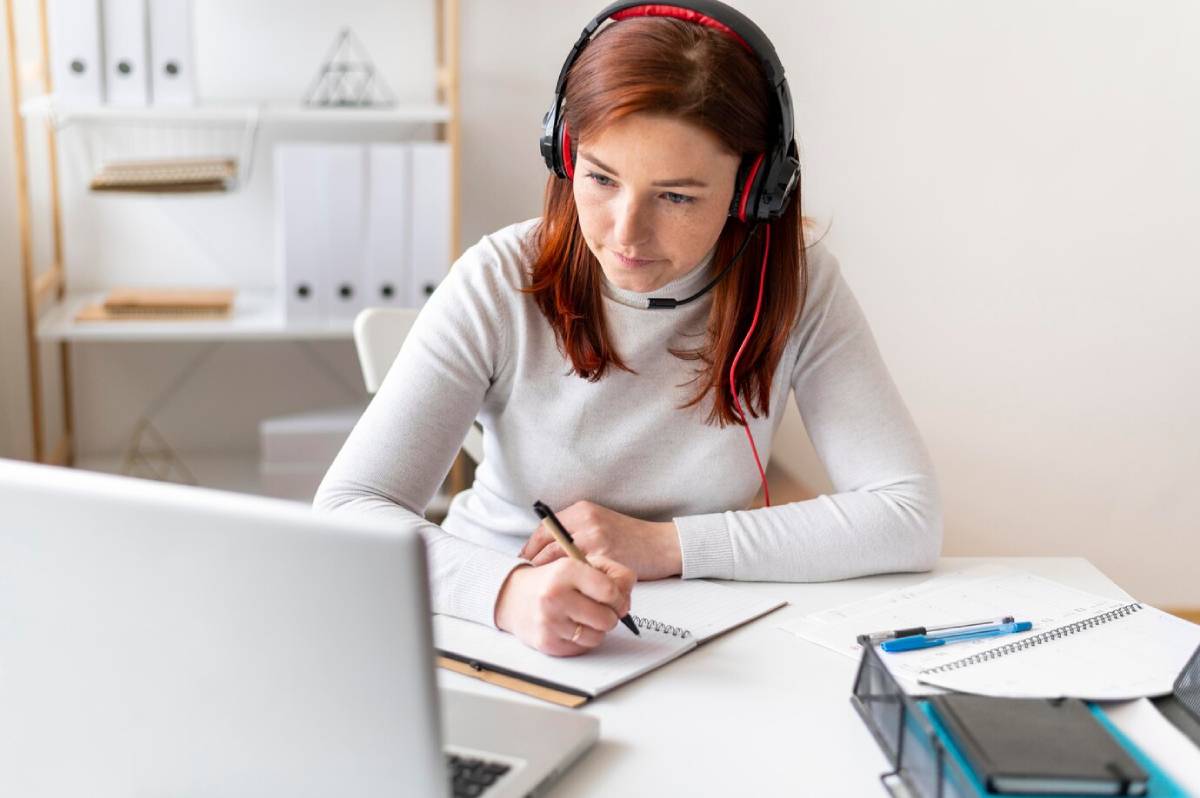
Benefits of Using OER in Personal Learning Plans
Today, education isn’t just in classrooms or tied to high tuition costs. Open Educational Resources (OER) have made learning more accessible, flexible, and personalised. No matter if you are a pro wanting to learn more, a student studying on your own, or a lifelong learner, using OER in your learning plan can bring many benefits. But what exactly are OER, and why should they be an essential part of your learning strategy? In this post, we’ll look at the benefits of using these free resources in your education. We’ll also share tips on how to get the most out of them.
What Are OER?
Open Educational Resources (OER) are materials for teaching, learning, and research. They are free for everyone. These resources come in many formats. They include textbooks, lecture notes, videos, quizzes, and full courses. All are available under licenses that let users access, modify, and share them freely.
OER differ from traditional learning materials because they are open and accessible. Anyone can use them, no matter where they are or how much money they have. They provide a special chance for personal learners. They can create their own learning paths that fit their needs and goals.
Why Should You Incorporate OER into Your Learning Plan?
Using OER in your personal learning plan offers many benefits. It can enhance your learning experience, boost your skills, and help you save money. Let’s dive into the main advantages of OER for personal education.
1. Cost-Effective Learning

One of the most obvious benefits of using OER is that it is free. Today, education costs are high. Textbooks, online courses, and learning materials can add up fast. OER removes this cost barrier. You can access top-notch resources for free.
For example, many students in traditional education systems are burdened with expensive textbooks. Using OER lets you access the same material. Sometimes, you’ll even find updated and interactive versions. Plus, you don’t have to worry about costs. OER is a great resource for anyone making a personal learning plan. It’s cost-effective, so it helps create a diverse and balanced learning experience.
2. Flexibility and Customisation
Another great benefit of OER is the flexibility it offers. Unlike traditional courses with set schedules, OER allows you to learn at your own pace, on your own terms. You can tailor your study schedule, dive deep into topics of personal interest, and even skip content that isn’t relevant to your needs.
OER can support your learning journey. Whether you’re making a professional development plan, exploring a new hobby, or seeking personal growth, it offers a customisable and adaptable approach.
If you want to master a new skill like coding or digital marketing, you can gather free resources from OER repositories. This way, you can create a learning path that fits your needs. You can explore beginner topics, tackle advanced ones, or go back to review concepts anytime.
3. Access to High-Quality Materials
Not all educational content is created equal. With OER, you gain access to high-quality, peer-reviewed, and well-structured learning materials. Many OER providers work with well-known universities, research institutions, and experts. This helps ensure the content is high quality.
Platforms like MIT OpenCourseWare and Khan Academy provide a lot of content. They cover many subjects, including engineering and art history. This content is made by some of the smartest people in academia. When you use OER in your learning plan, you learn from quality content. These materials are rigorous, reliable, and trusted in academia.
4. Encouraging Lifelong Learning

One of the most rewarding aspects of OER is that it supports lifelong learning. OER helps everyone learn. If you’re a pro wanting to sharpen your skills or a retiree eager to try something new, OER makes education easier to access.
Lifelong learning is essential for staying competitive in today’s rapidly changing job market. With OER, you can keep your knowledge up-to-date, adapt to new technologies, and stay informed about trends in your industry. Platforms like Coursera, edX, and FutureLearn offer high-quality courses from top schools. This makes it easy to keep learning after formal education ends.
5. Collaborative Learning and Sharing
OER aren’t just about individual learning — they foster a culture of collaboration and sharing. Many OER resources are designed to be shared, modified, and built upon, creating a dynamic learning community. This can be especially beneficial when you’re pursuing independent study.
You might find materials on a topic. However, they could be better with newer examples or a fresh perspective. With OER, you can share your ideas and improvements. This creates a richer and more interactive learning environment.
6. Promoting Accessibility for All Learners
Adding OER to your learning plan makes education available to everyone, regardless of where they are or their background. OER offers many opportunities for people in underserved communities. It helps those with limited access to quality education.
OER lets learners worldwide access quality content. This helps those who might not have resources or money for education. This shift towards democratising education matches the worldwide effort for fairness. It focuses on creating equal and inclusive learning opportunities for everyone.
How to Get Started with OER in Your Learning Plan
Now that you see the benefits of OER for your education, how can you start using these resources in your learning plan?
Step 1: Identify Your Learning Goals
Before diving into OER, it’s important to clearly understand your educational objectives. Are you looking to gain new skills for your career? Are you interested in exploring a subject outside your profession? Setting clear learning goals will help you focus on the right OER materials that will best support your development.
Step 2: Find Reliable OER Repositories
The next step is to explore trusted OER repositories where you can find free course materials. Some well-known platforms include:
- MIT OpenCourseWare: Offers comprehensive course materials from a variety of subjects, including engineering, humanities, and social sciences.
- Khan Academy: Great for beginners in subjects like math, science, and humanities.
- OER Commons: A digital library that offers open resources across many disciplines.
- Coursera: Most courses cost money, but Coursera has free content too. Top schools like Yale and Stanford often provide it.
- OpenStax: A non-profit educational initiative providing high-quality open textbooks for physics, biology, and economics.
Step 3: Organise and Curate Your Materials
Once you’ve found suitable OER materials, it’s time to curate your learning path. Create a schedule or a study plan that maps out how you’ll engage with the content. You can use tools like Trello or Google Calendar to plan your lessons and set deadlines.
Step 4: Engage Actively with the Community
As you work through your OER materials, don’t forget to engage with the broader learning community. Many OER platforms have discussion boards. You can connect with other learners, ask questions, and share your knowledge there. Joining these communities can boost your learning and keep you motivated.
Step 5: Reflect and Update Your Learning Plan
Learning is a dynamic process. Keep using OER in your studies. Reflect on your progress often. Adjust your learning plan when necessary. Are you meeting your goals? Do you need additional resources to cover a particular topic in more depth? Adjusting your plan to suit your evolving needs ensures you continue growing and improving.
Conclusion: Embrace the Power of OER for Lifelong Learning

Adding OER to your learning plan opens up many chances. You can grow your knowledge, learn new skills, and keep learning for life. OER offers many benefits. It saves costs, provides flexibility, and ensures high-quality content. Plus, it is accessible globally. This makes OER a great resource for learners of all ages and backgrounds.
So, whether you’re a student, a professional, or a lifelong learner, now is the perfect time to explore the world of OER. Begin your learning journey today. Enjoy the freedom and empowerment of self-directed education.
Act now: Discover the world of OER, set your learning goals, and start your personalised education! Tell us about your experiences in the comments below. We want to know how OER has changed your learning plan!


